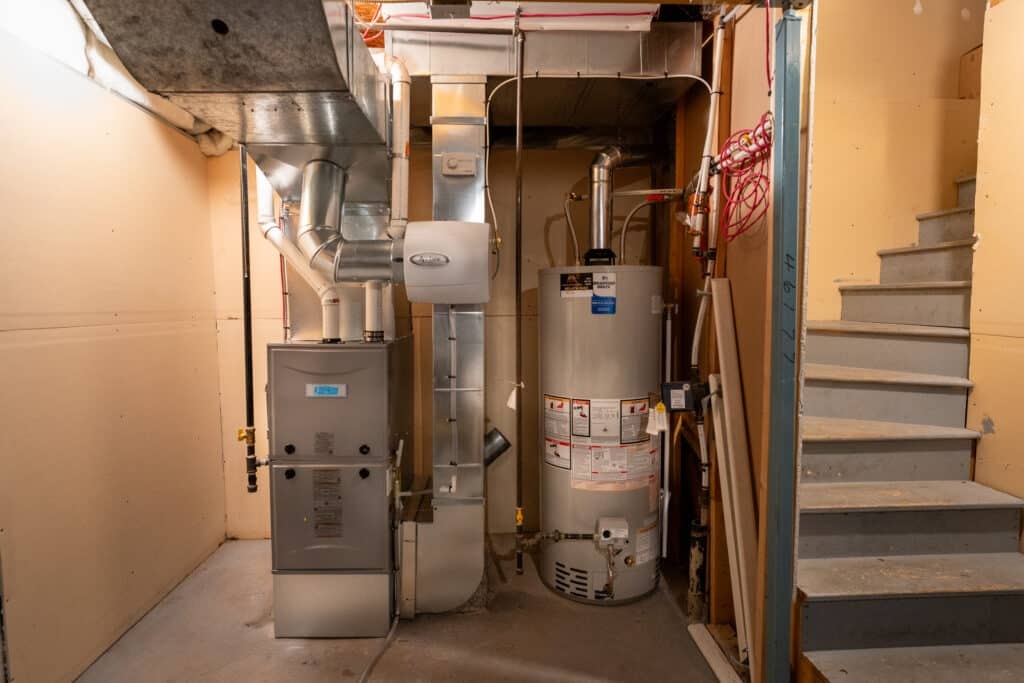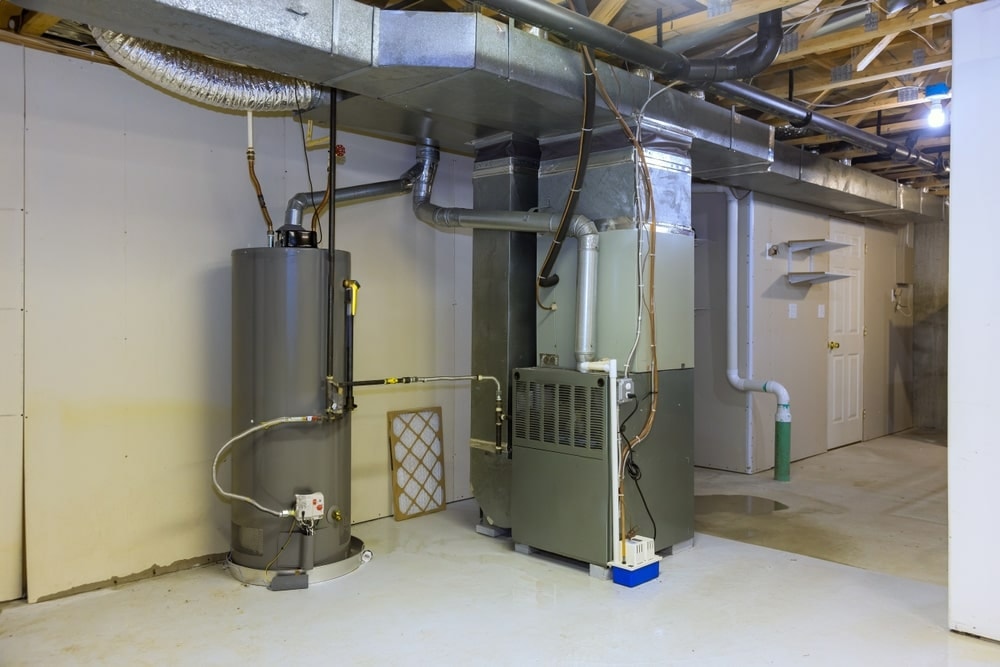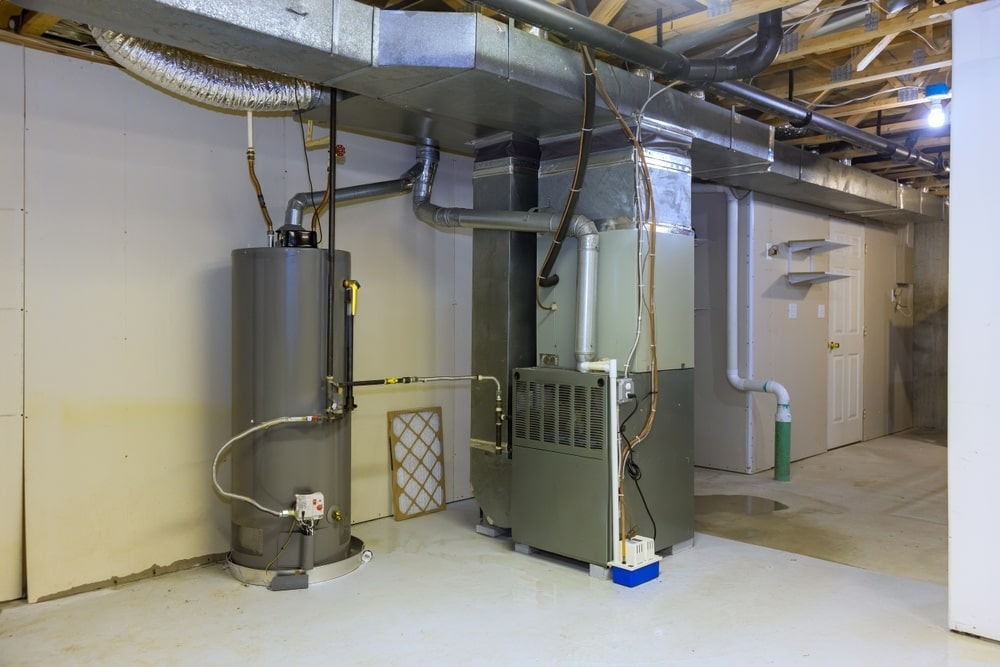There’s nothing like a nice hot shower to start or end your day, until suddenly, there isn’t. Hot showers are a daily comfort that most households rely on, and if your hot water has been unreliable lately, your hot water tank could be sending out warning signs that it’s on its last legs.
Water heaters don’t last forever. And while some issues can be solved with a simple repair, others signal that it’s time for a full replacement. At Apollo Plumbing, we’ve helped Edmonton homeowners assess, repair, and replace hot water heaters for decades. Here’s how to tell when it’s time to stop repairing and start replacing.
How Long Do Hot Water Heaters Last?
Most hot water tanks have a limited lifespan of about 8–12 years, depending on the brand, usage, and whether it’s an electric water heater, gas model, or tankless unit. As hot water heaters age, they become less efficient and more prone to issues, so if yours is creeping up in age, you’ll want to pay close attention to any performance issues.
Not sure how old your unit is? Check the manufacturer’s sticker on the tank, it usually includes the serial number listed, which you can look up online to find the manufacture date.

1. Inconsistent or Inadequate Heating
If your water goes from hot to cold quickly, or never quite gets hot enough, your heating element may be struggling. Inadequate heating naturally is a common sign that your water heater is beginning to lose function.
This could be caused by:
- A worn-out heating element (in electric models)
- A failing thermostat
- Or the tank simply being too old to keep up with your household’s needs
As water heaters age, they can lose function and may eventually stop heating water effectively. If inadequate heating becomes the norm, and flushing the water heater tank doesn’t help, it may be time to replace your hot water heater.
2. Strange Noises Coming From the Tank
If you hear noises coming from your water heater, such as banging noises, popping, or rumbling sounds, that’s not normal.
These sounds are usually caused by sediment buildup at the bottom of the tank. Over time, minerals in the water settle and harden, forcing the heating element to work overtime, and reducing efficiency.
A tank flush can sometimes help, but if the noises persist, or the tank is old, the buildup may be too severe. At that point, it’s safer to replace the unit.
3. Rusty or Discoloured Water
When rust-coloured water or a red tint starts coming out of your hot water taps, it can be a sign of rust inside the tank. This often indicates that the metal inside the water heater is corroding. This could mean:
- The anode rod (which prevents rust) is worn down
- The inner lining of the tank has started to deteriorate
- Rust inside the metal components of the tank is causing discoloured water
- Corrosion is reaching a point where leaks are inevitable
If only your hot water is tinted (and not the cold), the hot water tank is likely the culprit.
4. Water Leaks Around the Base of the Tank
Leaking is a critical indicator of water heater failure, and water leaks are one of the clearest signs your hot water heater needs replacing.
Even a small puddle near the base of the tank could mean:
- Cracks or fractures inside the tank
- Failing seals or valves
- Aging components causing leaks due to metal fatigue and expansion
- Internal pressure causing expansion
Water heater leaks should be addressed immediately to prevent water damage.
Leaks almost never fix themselves. If the problem persists, call a licensed plumber immediately before the leak becomes a flood.
5. You’re Running Out of Hot Water Faster Than Before
If your showers run cold after just a few minutes, or if you can’t get through a full dishwashing cycle with hot water, your tank may be losing function due to age or sediment.
Older water heaters and overused heaters are more likely to lose efficiency, especially if sediment is taking up space inside. These units often struggle to meet household needs, particularly as your hot water usage increases. If your household’s hot water needs are increasing, you may also need a larger-capacity unit.
6. Your Water Heater Is More Than 10 Years Old
Even if your water heater seems fine, once it hits the 10–12 year mark, replacement should be on your radar. If your water heater is over 10 years old, it likely needs to be replaced. Over time, parts degrade, energy efficiency drops, and the risk of sudden leaks or failures increases, so you should consider replacing your water heater with a new water heater for improved efficiency and reliability.
Upgrading to a new hot water heater can improve efficiency, reduce utility bills, and give you peace of mind.
Build Up and Sediment: The Hidden Culprit
When it comes to water heater problems, sediment buildup is often the hidden culprit behind many of the warning signs homeowners notice. Over time, minerals like calcium and magnesium naturally present in your water supply settle at the bottom of the water heater tank. This sediment forms a stubborn layer that can cause a host of issues, from inadequate heating to strange noises and even leaks.
As sediment accumulates, it insulates the heating elements, making it harder for your hot water heater to heat water efficiently. This means your showers might not be as hot, and you could find yourself running out of hot water faster than before, especially when washing dishes or meeting your household’s daily needs. The extra strain on the heating elements can also lead to higher energy bills and, in severe cases, cause the elements to fail altogether.
Another key player in this process is the anode rod, which is designed to attract corrosive minerals and protect the inside of your tank. Over time, the anode rod itself can become coated with sediment or wear out, reducing its effectiveness and allowing rust to form inside the tank. This can lead to rusty water coming from your hot water taps—a clear sign that it’s time to replace or repair your water heater.
Regular maintenance is essential to keep sediment buildup in check. Flushing the tank at least once a year can help remove sediment from the bottom of the tank, while checking and replacing the anode rod as needed will help prevent corrosion. If you start to hear strange noises, notice rusty water, or experience inadequate heating, these are warning signs that sediment may be taking a toll on your water heater.
In some cases, a simple repair or tank flush performed by a certified plumber can solve the problem. However, if the sediment buildup is severe or your water heater is nearing the end of its lifespan, a full replacement may be the best option to restore reliable hot water for your home.
Don’t let sediment buildup catch you off guard. Staying proactive with maintenance and paying attention to warning signs can help you avoid costly repairs and ensure your hot water heater continues to deliver the comfort and convenience your household depends on. If you’re unsure about the condition of your water heater tank, contact a licensed plumber to assess whether it’s time to repair, replace, or upgrade to a new hot water heater.

What to Do If You Notice These Signs
If you’ve noticed one or more of these warning signs, don’t wait for your tank to completely fail.
- Contact a certified plumber at Apollo Plumbing
- We offer comprehensive water heater repair and replacement services
- We’ll assess whether you need a repair or a full replacement
- If needed, we’ll recommend the right-size new heater for your home and budget
For troubleshooting tips and maintenance guidelines, always consult your water heater manual to better understand your unit and its specific requirements.
We work with all types of water heaters, including:
- Gas and electric tanks
- Tankless systems
- Direct-vent and power-vented models
Best of all? We offer 24/7 service, transparent pricing, and no overtime charges, even on nights, weekends, or holidays.
TL;DR – Signs Your Hot Water Tank Needs Replacing
- Hot water runs out quickly or isn’t heating at all
- Banging or popping noises from the tank = sediment buildup
- Rusty or tinted hot water signals internal corrosion
- Leaks around the tank are a major red flag
- Your tank is 10+ years old and struggling to keep up
Final Thoughts
A failing hot water tank doesn’t just ruin your morning shower, it can cause major damage if left unchecked. At Apollo Plumbing, we help Edmonton homeowners spot the early signs and avoid costly breakdowns with timely, expert service.
Need your tank inspected, repaired, or replaced? Contact us today or visit our water heater services page to book a no-obligation quote. We’ll keep your home warm, your showers hot, and your water bills low.


